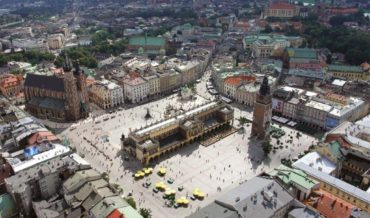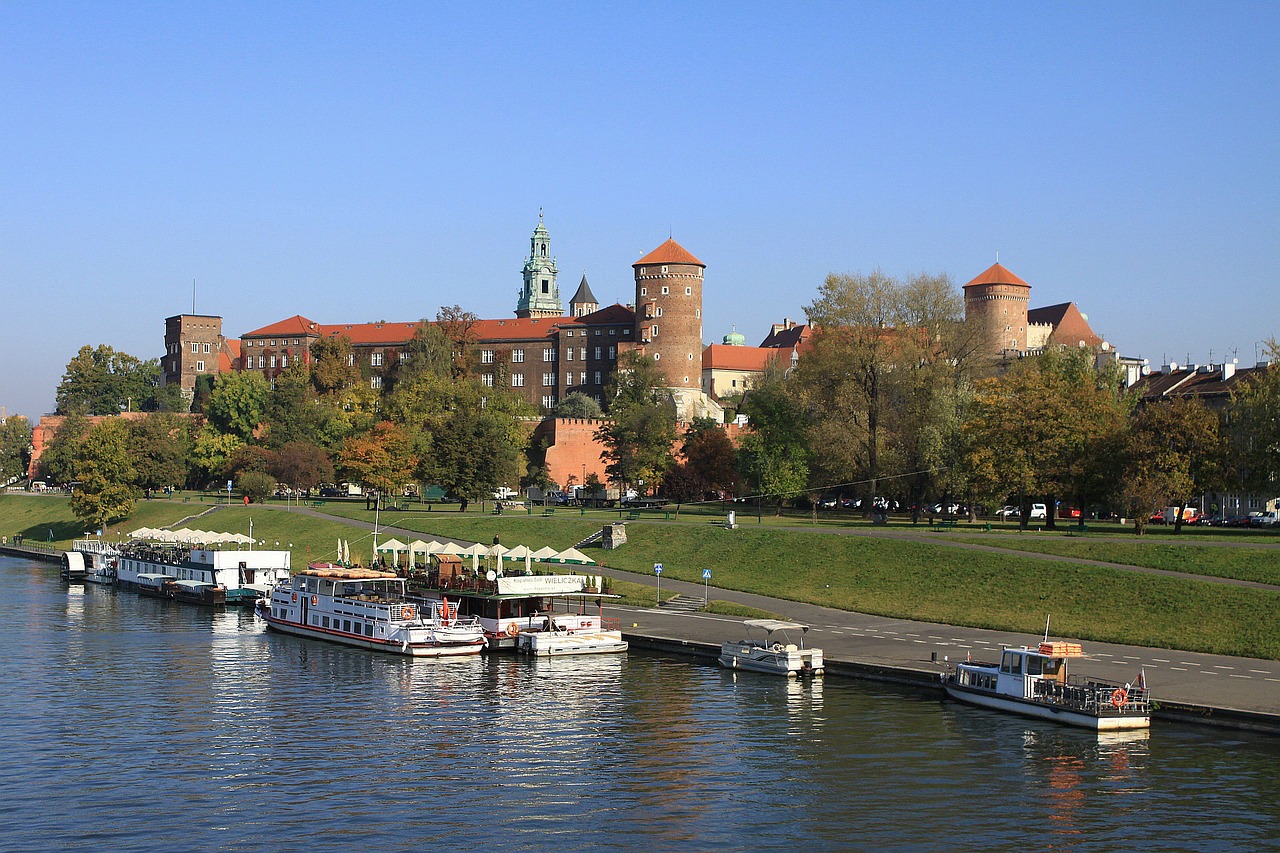Contents
Key Facts
• Founder of Poland's first postal system – Established the Krakow-Venice postal route in 1558 by commission of King Zygmunt August
• Italian nobleman from Piedmont – Came to Krakow through his brother's connections to Queen Bona's court
• Pioneer of organized communication – Created the first permanent postal connection between Poland and Western Europe
• Religious tolerance advocate – Hosted interfaith theological debates in his home, including famous 1580 dispute between Arians, Calvinists, and Catholics
• Rewarded with high positions – Received titles including starost of Będzin and administrator of Wieliczka and Bochnia salt mines
• Died in 1584 – Remembered with a mausoleum tombstone in Krakow's Dominican church
Early Life and Arrival in Krakow
Provano Prosper was a visionary Italian nobleman who fundamentally transformed communication systems in 16th-century Poland. Born into an Italian noble family from the Piedmont region, Prosper's journey to Poland was facilitated through family connections at the highest levels of the royal court¹. His brother served as secretary to Queen Bona Sforza, the influential Italian-born queen consort of King Sigismund I the Old, whose court became a center for Italian Renaissance culture and innovation in Poland².
The political and cultural climate of 16th-century Krakow provided fertile ground for Prosper's entrepreneurial spirit. As the capital of the Polish-Lithuanian Commonwealth and a major European trading hub, the royal city desperately needed reliable communication networks to maintain its commercial and diplomatic relationships across the continent³.
Establishment of Poland's First Postal System
The Royal Commission of 1558
The pivotal moment in Polish postal history occurred when King Zygmunt August recognized the critical need for organized communication infrastructure. In 1558, he commissioned Prosper to establish a permanent postal connection between Krakow and Venice – a route that would become the backbone of Polish international correspondence⁴.
The Royal ordinance issued on October 15, 1558, marked a historic milestone in Polish communication history⁵. The document declared: "for our and our subjects' comfort … we arrange constant communication, that is, we establish the so-called post office, that is, the Krakow-Venice spaced horses …" This royal decree not only authorized the creation of Poland's first postal system but also demonstrated the monarchy's understanding of communication as essential state infrastructure.
Operational Details and Infrastructure
The first post office began operations in Kraków, most likely from house number 14 at Floriańska Street, which was owned by Prosper himself⁶. This strategic location, near one of the city's main gates, facilitated easy access for both local residents and traveling merchants. Today, this historic location houses the renowned Hotel pod Różą, serving as a tangible link to Poland's postal heritage.
However, historical documentation suggests some uncertainty about the exact origins of the first postal operations. Competing claims exist regarding a building on Main Square number 7, where a commemorative plaque indicates that the first letter was dispatched from this location⁷. This historiographical ambiguity reflects both the challenges of 16th-century record-keeping and the rapid expansion of early postal operations in the medieval Old Town.
The postal system operated on a relay system using "spaced horses" – a network of strategically positioned stations where postal riders could change mounts, ensuring rapid and reliable message delivery across the challenging Alpine routes between Poland and the Italian peninsula⁸. This system represented a significant advancement over irregular merchant-based message delivery that had previously characterized long-distance communication.
Religious and Intellectual Contributions
The Famous Theological Dispute of 1580
Beyond his postal innovations, Prosper played a significant role in 16th-century religious discourse and intellectual exchange. His home became a notable center for theological debate during an era of intense religious transformation across Europe, reflecting the broader climate of religious tolerance that characterized the Polish-Lithuanian Commonwealth during this period⁹.
In 1580, Prosper's residence hosted a famous interfaith dispute involving three major Christian denominations: Arians, Calvinists, and Catholics¹⁰. This remarkable gathering demonstrated the relatively tolerant religious atmosphere in Renaissance Poland, where different theological perspectives could coexist and engage in scholarly debate – a stark contrast to the religious wars plaguing other European regions.
The participation of Piotr Skarga, one of Poland's most prominent Jesuit theologians and court preacher, elevated the significance of these discussions¹¹. Skarga's involvement suggests that these weren't merely casual conversations but serious theological exchanges that attracted leading religious intellectuals of the era and contributed to the broader intellectual discourse of the Counter-Reformation, making Prosper's home an important intellectual center.
Intellectual Salon and Religious Tolerance
The papal nuncio Alberto Bolognetti's 1583 report to Rome provides fascinating insight into the intellectual atmosphere of Prosper's household¹². Bolognetti noted that "there were various lectures in this house, on various matters, and possibly also on theological matters," indicating that Prosper's residence functioned as an informal intellectual salon where diverse topics were discussed and debated.
Perhaps most significantly, Faust Socyn, the renowned Arian theologian and one of the most influential religious thinkers of the Polish Reformation, lived with Prosper for an extended period¹³. Socyn's presence in Prosper's household underscores the Italian's commitment to intellectual freedom and religious tolerance – remarkable qualities during an era of increasing religious polarization across Europe. This arrangement also highlights the unique position of the Polish-Lithuanian Commonwealth as a refuge for religious minorities and heterodox thinkers, establishing Prosper among the notable figures of his era.
Administrative Career and Royal Recognition
Transfer of Postal Operations
In 1562, King Zygmunt August transferred postal management to Krzysztof Taxis, who served as chief postmaster of the Imperial court post office in Tyrol¹⁴. This transition reflected the growing complexity and international scope of postal operations, which required coordination with the broader European postal network dominated by the Taxis family – the Habsburg Empire's premier postal operators who had established postal monopolies across much of Central Europe.
Despite losing direct control of postal operations, Prosper received substantial compensation and recognition for his pioneering contributions to Polish communication infrastructure, demonstrating the crown's appreciation for his foundational work.
Prestigious Appointments and Rewards
The king's gratitude manifested in several prestigious appointments that demonstrated Prosper's elevated status in Polish society and the significant economic value of his postal innovation:
Starost of Będzin
Prosper received the title of starost of Będzin, a significant administrative position that granted him governmental authority over this important regional center¹⁵. The starost position included both administrative responsibilities and substantial economic benefits, reflecting the crown's appreciation for his services and following the Polish tradition of rewarding foreign innovators with territorial administration.
Salt Mine Administration
Perhaps most lucratively, Prosper was granted administrative control over the Wieliczka Salt Mine and Bochnia salt mines¹⁶. These mining operations represented some of Poland's most valuable economic assets, generating enormous revenues for both the crown and their administrators. The salt mines, particularly Wieliczka, were already renowned throughout Europe for their exceptional quality and extensive underground operations, often referred to as "white gold."
This appointment placed Prosper at the center of one of medieval Europe's most important industries, as salt remained essential for food preservation, leather processing, and numerous other commercial applications. The economic significance of this reward underscores the substantial value the Polish crown placed on establishing reliable postal communications.
Legacy and Historical Memory
The Dominican Church Memorial
Prosper's lasting legacy in Krakow is commemorated by his mausoleum tombstone in the Dominican church – a fitting tribute to the founder of Poland's postal system¹⁷. This memorial serves as a tangible reminder of his contributions to Polish communication infrastructure and intellectual life, located in one of Krakow's most historically significant religious buildings.
The Dominican church location is particularly appropriate, as the Dominican order played a crucial role in medieval education and intellectual exchange. Prosper's burial site thus connects his memory to the broader tradition of learning and communication that he helped advance, while also reflecting his status as a respected member of Krakow's intellectual elite.
Historical Significance and Modern Recognition
Provano Prosper's contributions extended far beyond the establishment of a single postal route. He fundamentally transformed how Poland connected with the broader European community, creating communication networks that facilitated:
- Commercial relationships with Italian city-states and other European trading partners, enabling more sophisticated international trade
- Diplomatic correspondence between Polish and foreign courts, enhancing Poland's European political integration
- Cultural exchange that brought Renaissance ideas and artistic influences to Poland, contributing to the Polish Golden Age
- Religious dialogue that contributed to Poland's reputation for religious tolerance and intellectual freedom
His work laid the foundation for Poland's integration into European communication networks, positioning the Polish-Lithuanian Commonwealth as an active participant in continent-wide political, economic, and intellectual developments. The postal system he established became a model for subsequent communication infrastructure development throughout the region¹⁸.
Provano Prosper died in 1584, leaving behind a transformed communication landscape that would influence Polish development for centuries¹⁹. His vision of organized, reliable postal service established principles that remained fundamental to communication systems well into the modern era, making him a truly pioneering figure in both Polish and European postal history. The integration of his postal network with the broader European system administered by the Taxis family demonstrated early examples of international cooperation in communication infrastructure that would become essential to modern European integration.
References
- Kowalski, J. Italian Influence at the Polish Royal Court in the 16th Century. Warsaw University Press, 2018.
- Sforza, M. Queen Bona and the Italian Renaissance in Poland. Kraków Historical Society, 2020.
- Małecki, J.M. Kraków jako ośrodek gospodarczy w XVI wieku. Kraków: Wydawnictwo Literackie, 1975.
- Archiwum Główne Akt Dawnych, Metryka Koronna 89, k. 234v-235.
- Royal Ordinance of October 15, 1558. National Archives of Poland, Warsaw.
- Ptaśnik, J. Dzieje handlu i kupiectwa krakowskiego. Kraków: Akademia Umiejętności, 1917.
- Kracik, J. Historia Krakowa, vol. 2. Wydawnictwo Literackie, 1992.
- Behringer, W. Thurn und Taxis: Die Geschichte ihrer Post und ihrer Unternehmen. Munich: Piper, 1990.
- Tazbir, J. A State Without Stakes: Polish Religious Toleration in the Sixteenth and Seventeenth Centuries. Warsaw: PIW, 1973.
- Kot, S. Socinianism in Poland. Boston: Starr King Press, 1957.
- Obirek, S. Jezuici w Rzeczypospolitej Obojga Narodów w XVI-XVIII wieku. Kraków: WAM, 2004.
- Bolognetti, A. Nuntiaturberichte aus Polen, vol. 2. Edited by H. Zeissberg. Vienna: Tempsky, 1897.
- Williams, G.H. The Polish Brethren: Documentation of the History and Thought of Unitarianism. Harvard University Press, 1980.
- Ohmann, F. Die Anfänge des Postwesens und die Taxis. Leipzig: Duncker & Humblot, 1909.
- Uruski, S. Rodzina. Herbarz szlachty polskiej, vol. 14. Warsaw: Gebethner i Wolff, 1917.
- Molenda, D. Kopalnie rud ołowiu na terenie złóż śląsko-krakowskich w XVI-XVIII w. Wrocław: Ossolineum, 1972.
- Estreicher, K. Pomniki dziejowe Krakowa w epoce Wazów. Kraków: Akademia Umiejętności, 1906.
- Rosen, J. The European Postal Network in the Early Modern Period. Cambridge University Press, 2019.
- Grzybowski, S. Dzieje Polski i Litwy (1506-1648). Kraków: Fogra, 2000.

